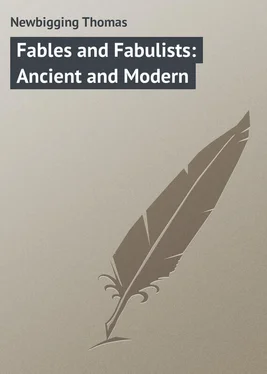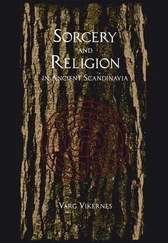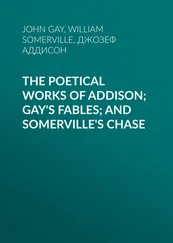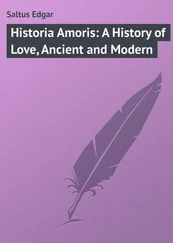Thomas Newbigging - Fables and Fabulists - Ancient and Modern
Здесь есть возможность читать онлайн «Thomas Newbigging - Fables and Fabulists - Ancient and Modern» — ознакомительный отрывок электронной книги совершенно бесплатно, а после прочтения отрывка купить полную версию. В некоторых случаях можно слушать аудио, скачать через торрент в формате fb2 и присутствует краткое содержание. Жанр: foreign_prose, на английском языке. Описание произведения, (предисловие) а так же отзывы посетителей доступны на портале библиотеки ЛибКат.
- Название:Fables and Fabulists: Ancient and Modern
- Автор:
- Жанр:
- Год:неизвестен
- ISBN:нет данных
- Рейтинг книги:5 / 5. Голосов: 1
-
Избранное:Добавить в избранное
- Отзывы:
-
Ваша оценка:
- 100
- 1
- 2
- 3
- 4
- 5
Fables and Fabulists: Ancient and Modern: краткое содержание, описание и аннотация
Предлагаем к чтению аннотацию, описание, краткое содержание или предисловие (зависит от того, что написал сам автор книги «Fables and Fabulists: Ancient and Modern»). Если вы не нашли необходимую информацию о книге — напишите в комментариях, мы постараемся отыскать её.
Fables and Fabulists: Ancient and Modern — читать онлайн ознакомительный отрывок
Ниже представлен текст книги, разбитый по страницам. Система сохранения места последней прочитанной страницы, позволяет с удобством читать онлайн бесплатно книгу «Fables and Fabulists: Ancient and Modern», без необходимости каждый раз заново искать на чём Вы остановились. Поставьте закладку, и сможете в любой момент перейти на страницу, на которой закончили чтение.
Интервал:
Закладка:
It might almost appear that a fable of this kind is an error of judgment, and that it is calculated to do harm rather than good, inasmuch as it exhibits the triumph of duplicity and the defeat of wisdom. True, the author of the fable tries to recover the lost ground in the application, by mildly holding up the fox to reprobation, thus:
'Application: The effect these two orators had on the perceptions of their audience was exactly the reverse one to the other. That of the elephant touched the guilty, like satire, with pain and reproach; even the most innocent was humbled, as none were wholly free from vice, and all felt themselves lowered even in their own opinion, and heard the admonition as an irksome duty, but still with little inclination to undergo the difficult task of amendment. But when the fox began, all was joy; the innocent felt all the gratification which proceeds from the consciousness of superiority, and the guilty to find their vices and follies treated only as a jest; for we all have felt how much more pleasure we enjoy laughing at a fool than in being scrutinized by the sage. From this cause it is that farce of the most grotesque and absurd kind is tolerated and received, and not without some degree of relish, even by the good and the wise, as we all want comfort.'
In spite of the application – nay, rather to some extent by reason of it, for the anti-climax is extraordinary in a fable – it may be doubted whether our sympathies are not with the fox rather than with the elephant. We feel that the latter, with all his wisdom and good advice, is somewhat of a bore; whilst the fox, rake and wastrel though he be, has that touch of nature that makes him kin.
Æsop's well-known fable of The Fox and the Crow is also an example of the success of the scoundrel, but mark the difference: here there is the obvious reproof of the vain and silly bird, deceived by flattering words, till, in attempting to sing, she drops into the mouth of the fox the savoury morsel she held in her beak! Here our verdict is: 'Served her right!' In Northcote's fable, clever though it is as a narration, this climax is altogether wanting.
It has been suggested that there is a closer natural affinity than at first sight appears between man and the lower animals, and that the recognition of this contact at many points would suggest the idea of conferring the power of speech upon the latter in the fable. In the higher reason and its resultant effects they differ fundamentally; mere animals are wanting discourse of reason, but the purely animal passions of cunning, anger, hatred, and even revenge and love of kind, and the nobler characteristics of faithfulness and gratitude prevail in the dispositions of both. These similarities would strike observers in the pastoral ages of the world with even greater force than in later times.
The ineradicable impression which certain fables have made upon the mind through uncounted generations by their self-evident appropriateness and truth, is well exemplified in The Wolf and the Lamb ; The Fox and the Grapes ; The Hare and the Tortoise ; The Dog and the Shadow ; The Mountain in Labour ; The Fox without a Tail ; The Satyr and the Man , who blew hot and cold with the same breath, and others. It is safe to assert that nothing in literature has been more quoted than the fables named. We could not afford to lose them; their absence would be a distinct loss – literature and life would be the poorer without them; and, such being the fact, we are justified in holding those writers in esteem who have contributed to the instruction and entertainment of mankind in the fables they have invented.
CHAPTER VI
ÆSOP
'Nature formed but one such man.'
'The hungry judges soon the sentence sign.'
Æsop is justly regarded as the foremost inventor of fables that the world has seen. He flourished in the sixth century before Christ. Several places, as in the case of Homer, are claimed as his birthplace – Sardis in Lydia, Ammorius, the island of Samos, and Mesembra, a city of Thrace; but the weight of authority is in favour of Cotiæum, a city of Phrygia in the Lesser Asia, 19 19 Suidas.
hence his sobriquet of 'the Phrygian.'
Whether he was a slave from birth is uncertain, but if not, he became such, and served three masters in succession. Demarchus or Caresias of Athens was his first master; the next, Zanthus or Xanthus, a philosopher, of the island of Samos; and the third, Idmon or Jadmon, also of Samos. His faithful service and wisdom so pleased Idmon that he gave Æsop his freedom.
Growing in reputation both as a sage and a wit, he associated with the wisest men of his age. Amongst his contemporaries were the seven sages of Greece: Periander, Thales, Solon, Cleobulus, Chilo, Bias and Pittacus; but he was eventually esteemed wiser than any of them. The humour with which his sage counsels were spiced made these more acceptable (both in his own and later times) than the dull, if weighty, wisdom of his compeers.
He became attached by invitation of Crœsus, the rich King of Lydia, to the court at Sardis, the capital, and continued under the patronage of that monarch for the remainder of his life. Crœsus employed him in various embassies which he carried to a successful issue. The last he undertook was a mission to Delphi to offer sacrifices to Apollo, and to distribute four minæ 20 20 The mina was twelve ounces, or a sum estimated as equal to £3 15s. English.
of silver to each citizen. To the character of the Delphians might with justice be applied the saying of a later time: 'The nearer the temple and the farther from God.' Familiarity with the Oracle, as is the case in smaller matters, bred contempt, for the meanness of their lives was due to the circumstance that the offerings of strangers coming to the temple of the god enabled them to live a life of idleness, to the neglect of the cultivation of their lands.
Æsop upbraided them for this conduct, and, scorning to encourage them in their evil habits, instead of distributing amongst them the money which Crœsus had sent, he returned it to Sardis. This, as was natural with persons of their mean character, so inflamed them against him that they conspired to compass his destruction. Accordingly (as the story goes), they hid away amongst his baggage, as he was leaving the city, a golden goblet taken from the temple and consecrated to Apollo. Search being made, and the vessel discovered, the charge of sacrilege was brought against him. His judges pronounced him guilty, and he was sentenced to be precipitated from the rock Hyampia. Immediately before his execution he delivered to his persecutors the fable of The Eagle and the Beetle , 21 21 See post , p. 76 .
by which he warned them that even the weak may procure vengeance against the strong for injuries inflicted. The warning was unheeded by his murderers. The shameful sentence was carried out, and so Æsop died, according to Eusebius, in the fourth year of the fifty-fourth Olympiad, or 561 years before the Christian era. The fate of poor Æsop was like that of a good many other world-menders!
According to ancient chroniclers, the death of Æsop did not go unavenged. Misfortunes of many kinds overtook the Delphians; pestilence decimated them; such of their lands as they tried to cultivate were rendered barren, with famine as the result, and these miseries continued to afflict them for many years. At length, having consulted the Oracle, they received as answer that which their secret conscience affirmed to be true, that their calamities were due to the death of Æsop, whom they had so unjustly condemned. Thereupon they caused proclamation to be made in all public places throughout the country, offering reparation to any of Æsop's representatives who should appear. The only claimant that responded was a grandson of Idmon, Æsop's former master; and having made such expiation as he demanded, the Delphians were delivered from their troubles.
Читать дальшеИнтервал:
Закладка:
Похожие книги на «Fables and Fabulists: Ancient and Modern»
Представляем Вашему вниманию похожие книги на «Fables and Fabulists: Ancient and Modern» списком для выбора. Мы отобрали схожую по названию и смыслу литературу в надежде предоставить читателям больше вариантов отыскать новые, интересные, ещё непрочитанные произведения.
Обсуждение, отзывы о книге «Fables and Fabulists: Ancient and Modern» и просто собственные мнения читателей. Оставьте ваши комментарии, напишите, что Вы думаете о произведении, его смысле или главных героях. Укажите что конкретно понравилось, а что нет, и почему Вы так считаете.












